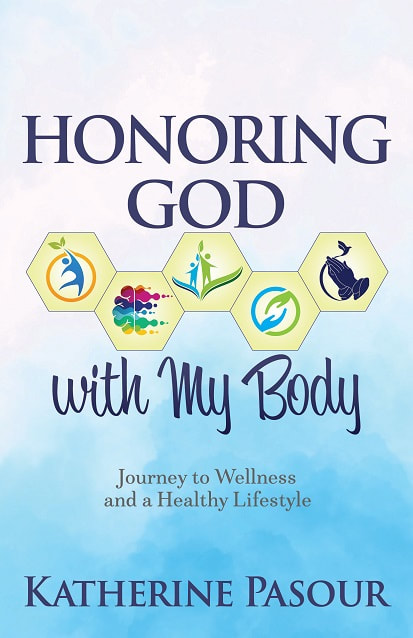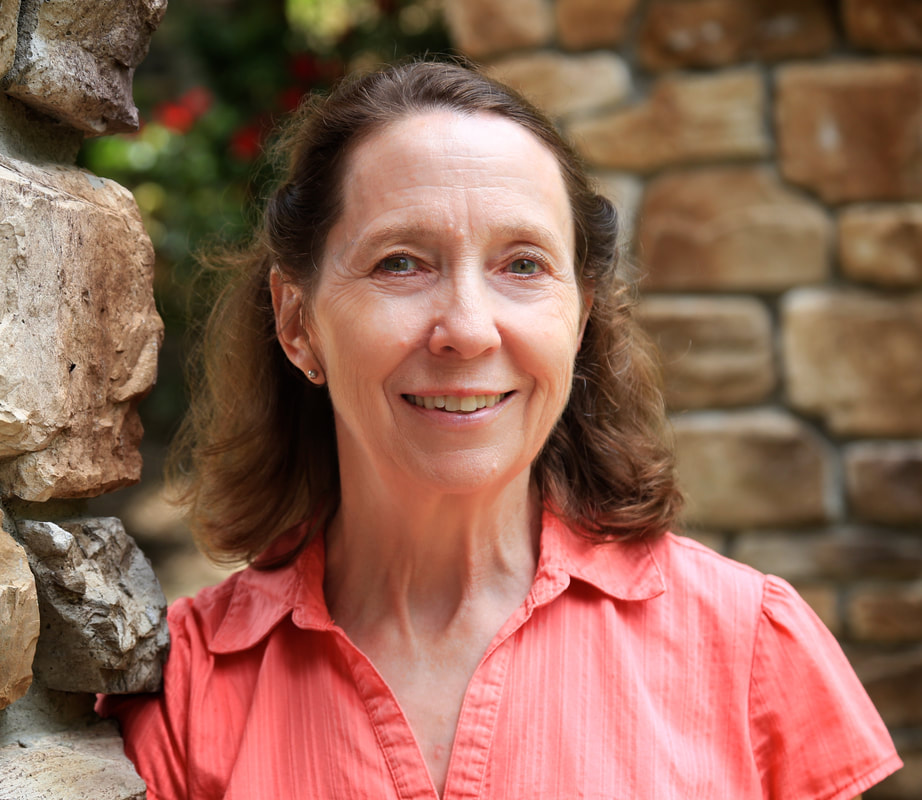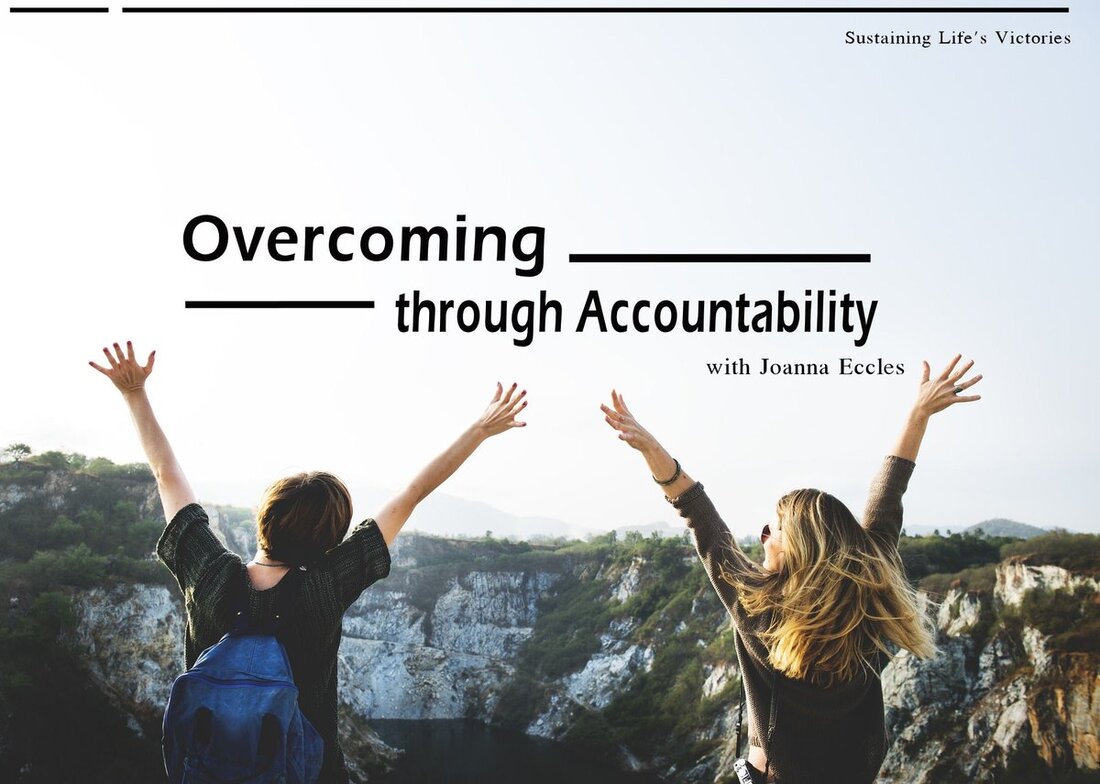|
This week I am honored to host a guest blog by Katherine Pasour. I know her through the Blue Ridge Mountain Christian Writers Conference. Katherine is a great writer who encourages others in their writing journeys. She recently published the book "Honoring God with My Body: Journey to Wellness and Healthy Lifestyle." I appreciate her desire to connect taking care of our bodies as a way to honor God, and am excited about her words. I pray her blog below will challenge you to find new ways to create healthy habits. I'm also doing a give-away of her book where I will have a drawing for any new subscribers to my blog. I will announce the winner on Tuesday, November 1, 2022. Enjoy her article! I am blessed. Two amazing little people call me Grammy and I have the privilege of caring for these wonderful gifts from God three days a week. Their mother usually has leftovers in the refrigerator for my lunch. Recently, she had a bowl of slaw covered with a stretchy lid and I dipped some out before attempting to put the cover back on the bowl. After numerous attempts and much grumbling, I admitted complete lack of success. The plastic cover stretched over the bowl without too much difficulty. But after a second or two, the lid always popped off. After a dozen attempts, I accepted defeat. My options?
Life presents us with challenges on a daily basis. If we find a task extremely difficult, our options may be similar to what I faced with the bowl of slaw—Persist in trying only one way—Adapt our strategy and find a different way to complete the challenge—or decide the task isn’t worth doing and give up. What about the challenge of making healthy lifestyle choices? Below are five suggestions for your consideration. These actions can lead to a healthier lifestyle, but first an answer to the obvious question: Why bother to seek a healthier lifestyle? Achieving a healthy lifestyle, which includes daily physical activity and healthy nutrition, provides significant benefits:
But achieving a healthy lifestyle isn’t always easy. We don’t always have the information we need to make healthy choices. Fast foods and unhealthy snacks tempt us. We may have a sedentary job and limited options for exercise opportunities. Perhaps we indulge in unhealthy eating habits that are difficult to eliminate. So…let’s take a look at those suggestions for a healthier lifestyle. Five actions for a healthier you:
Persist, adapt, and give up In my situation with the bowl and frustrating cover, my solution was to find a different container and lid to store the slaw. I did some persisting, adapting, and giving up. I persisted in that I was determined to get the slaw back into the refrigerator. I adapted by finding another method. I gave up on the original plan and found a different way that worked. Persist, adapt and give up (?) on your journey to a healthier lifestyle.
God gifted us with an amazing human body. For you created my inmost being; you knit me together in my mother’s womb. I praise you because I am fearfully and wonderfully made; your works are wonderful, I know that full well. (Psalm 138:14-15, NIV) We honor God when we take care of His gift.
18 Comments
Have you ever considered getting an accountability partner, but had no idea what to discuss? This practical checklist covers physical, mental, emotional, spiritual, and financial questions you can cover with your accountability partner during monthly meetings. It is not exhaustive, so feel free to add more. You know best which areas are struggles for you and where you need more encouragement.
If you meet with your accountability partner on a monthly basis, I suggest tackling no more than a few goals each month so you don’t get overwhelmed. Sometimes I chose one goal from each area, but other times I need to focus on a specific category more than others. That works. You drive where you need to grow so that you get the most from the experience. Physical Goals:
Mental Goals:
Emotional Goals:
Spiritual Goals:
Financial Goals:
What other things would you add? Please post your suggestions below. Thanks! This week I had the opportunity to guest blog for Katy Kauffman's series "Sustaining Life's Victories." I share how Biblical accountability has grown my relationship with God and give practical tips for creating accountability in your own life.
Here's the article: I had one sin that crippled me for years. I shoved it into the deepest corner of my heart so no one would know my shame. Satan used that guilt to keep me entrenched in sin. I remember sobbing by my bed, begging God to rid me of the pain. I didn’t know what to do. God showed me that surfacing sin is one of the surest ways to strangle its grip on my life. When I finally confessed it, the stronghold broke, releasing the sin’s hold on me. First John 1:9 says, “If we confess our sins, He is faithful and just to forgive us our sins, and to cleanse us from all unrighteousness” (NKJV). From this verse, I knew that God had the ultimate power of forgiveness. However, even though I’d confessed my sin and been forgiven, I still didn’t feel like I was maintaining the victory. Then I got an accountability partner. I discovered that beyond confessing our sins to God, real freedom can be found in confessing our sins to other believers. While Catholics have confessing to a priest ingrained into their culture, my Protestant background left out that aspect of Christian life. Nonetheless, the concept is very biblical. James 5:16 says, “Confess your trespasses to one another, and pray for one another, that you may be healed” (NKJV). This verse didn’t mean that I should start telling everyone everything that I’d done wrong. Instead, I read it as an instruction to confess my sins to a Christian friend who’d ask me hard questions about my thoughts and actions. My Accountability Journey Finding an accountability buddy brought someone alongside me in the fight against sin. God created Christian community not only for fellowship and fun, but to help encourage each other to lead godly lives, even when it’s hard. When I grew accountability in my life, my joy increased as sin lessened its power over me. My accountability partner and I have met monthly for about ten years. We open with prayer and take turns giving our updates from the last month and praying about where He is leading us next. Besides confessing our sins to each other, God often provides direction and reveals wisdom to us during our discussions. Once, we felt God calling us to start a prayer group. My life was hectic, and I couldn’t figure out when to host it. I wound up convincing my Bible study to switch our regular study to a prayer night once a month. Another insight God gave me during our talks was that all my time belonged to Him. I’d been struggling with how long it was taking me to reach certain life goals. I realized that if all my time belonged to God, He could use it however He wanted, and I’d never be late. God had also done a lot of preparation work in Joseph and Moses while they waited to fulfill their callings. My job was to seek God and trust His timing. Ways to Create Accountability Here are some general insights I learned about how to establish an accountability relationship:
With these thoughts in mind, if you are seeking to overcome sin and desire to hear God in new ways, consider finding an accountability partner. I can’t recommend it enough. The relationship is mutually beneficial and provides the Holy Spirit a new avenue of connection into your life to spur you into good works that will bless you and glorify God.
|
AuthorJoanna Eccles has led Bible studies for over twenty years and completed the year-long C. S. Lewis Fellows Program. She is passionate about discipleship and helping people grow in Christ. Joanna enjoys coffee and reading, and currently lives in Florida. Categories
All
|
© COPYRIGHT 2018. ALL RIGHTS RESERVED.





 RSS Feed
RSS Feed